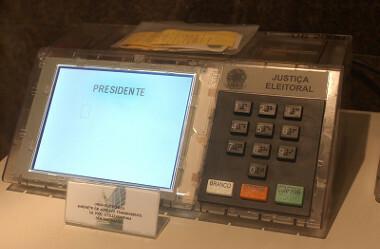Every election year, we see various media outlets covering the votes as a significant moment, where we have the celebration of the so-called “democracy party”. However, before the choice of our representatives was recounted in such a festive atmosphere, here we must analyze the deviations and values that democracy has assumed in our lands throughout the centuries.
In colonial times, we observed that the exercise of political rights was restricted to a limited portion of landowners, known as “good men”. Inside the city councils, they decided who would occupy the most important political positions and which laws would be valid. Already at that moment, the association between elites and political rights was moving in favor of political exclusion.
Reaching the 18th century, we noticed that the Enlightenment ideals reached Brazilian lands supporting some of the colonial revolts. In some cases, such as the Inconfidência Mineira, the possibility of organizing a republican government appears as a demand. Despite suggesting rights, we cannot list the search for democracy, considering that slavery would be maintained under the new regime.
In our independence, we see that an elite interested in maintaining its economic advantages was leading the end of the colonial pact. Thus, slavery was maintained in Brazil and the installation of the census vote, ratified by our constitution, established political participation as a perk for the privileged. Furthermore, the moderating power enshrined a political system centered on the figure of the king.
From 1870 onwards, the republican wave came together with abolitionism. Among different projects and interpretations, we see that the end of slavery and the imperial order followed the years of 1888 and 1889. At that time, access to voting and institutions was further reduced when, in a deprived place of educational institutions, literacy was required as a requirement in the choice of representatives. politicians.
In the so-called First Republic, we see that the demand was also added to a corrupt electoral system, contaminated by mechanisms that determined the alternation of the oligarchies in power. With the growth of cities and the urban electorate, this situation began to experience its first signs of instability. It was then that, in 1930, a revolution placed Getúlio Vargas in charge of the nation.
Do not stop now... There's more after the advertising ;)
While he was severely critical of electoral corruption and political exclusion, Vargas undertook political maneuvers that, over the next fifteen years, crystallized his name in power. Only in 1945, after having fought against the European totalitarian regimes, did Getúlio Vargas leave the presidential post for elections to take place through the exercise of citizenship of thousands of Brazilians.
Between 1945 and 1964, we observed the development of democratic institutions at a stage in which national economic development went hand in hand with the worsening of social issues. The increase in our foreign debt and the demand of our working classes clashed with the populist tone of the rulers of that time. In this way, social movements and left-wing parties started to demand more significant transformations.
It was then that, in 1964, the military organized a military coup that established the drastic reduction of democratic freedoms in the country. Alleging the threat of a communist-style revolution, the military regime installed itself promoting the extinction of the multipartyism and the installation of a bipartisan system that barely opened a gap to a systematic opposition to the government.
Twenty-one years later, the military left power by allowing the return of direct elections and free party organization. At that time, several parties were formed at a time when the demands of the population were mounting in a period marked by economic instability and terrible inflation rates. In such a way, we were experiencing the return of democracy without even recognizing its importance and meaning.
Currently, thousands of Brazilians exercise their citizenship through voting. Among the disbelief and skepticism of some, the existence of mandatory voting for a large part of the population is frequently questioned. At the same time, we observe that the belief in political ideologies and parties loses space for the easy I praise political figures who use charisma more than a conviction to garner our electorate.
By Rainer Sousa
Master in History
Would you like to reference this text in a school or academic work? Look:
SOUSA, Rainer Gonçalves. "The democratic issue in Brazil"; Brazil School. Available in: https://brasilescola.uol.com.br/politica/primordios-democracia-patria-tupiniquim.htm. Accessed on June 27, 2021.

